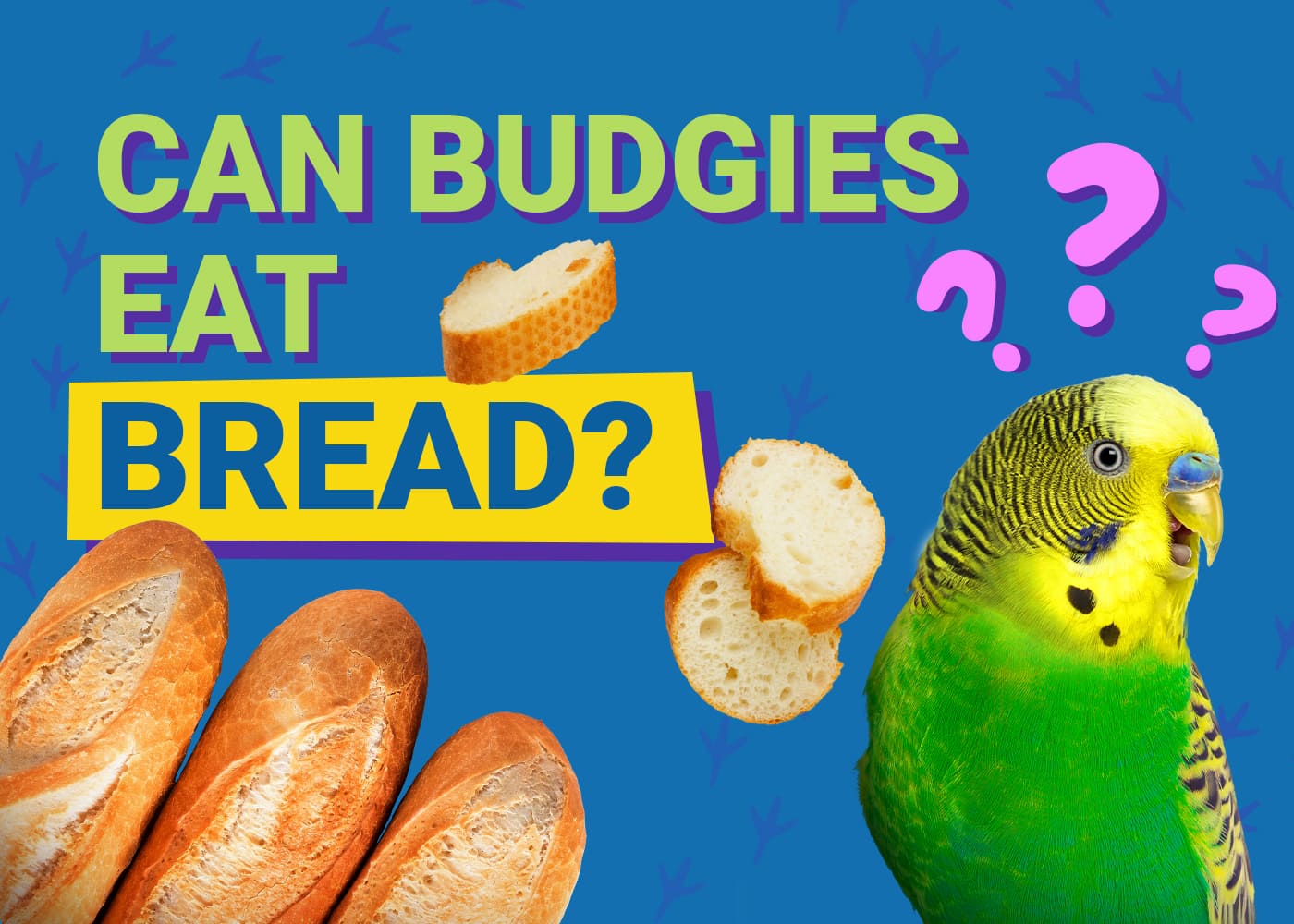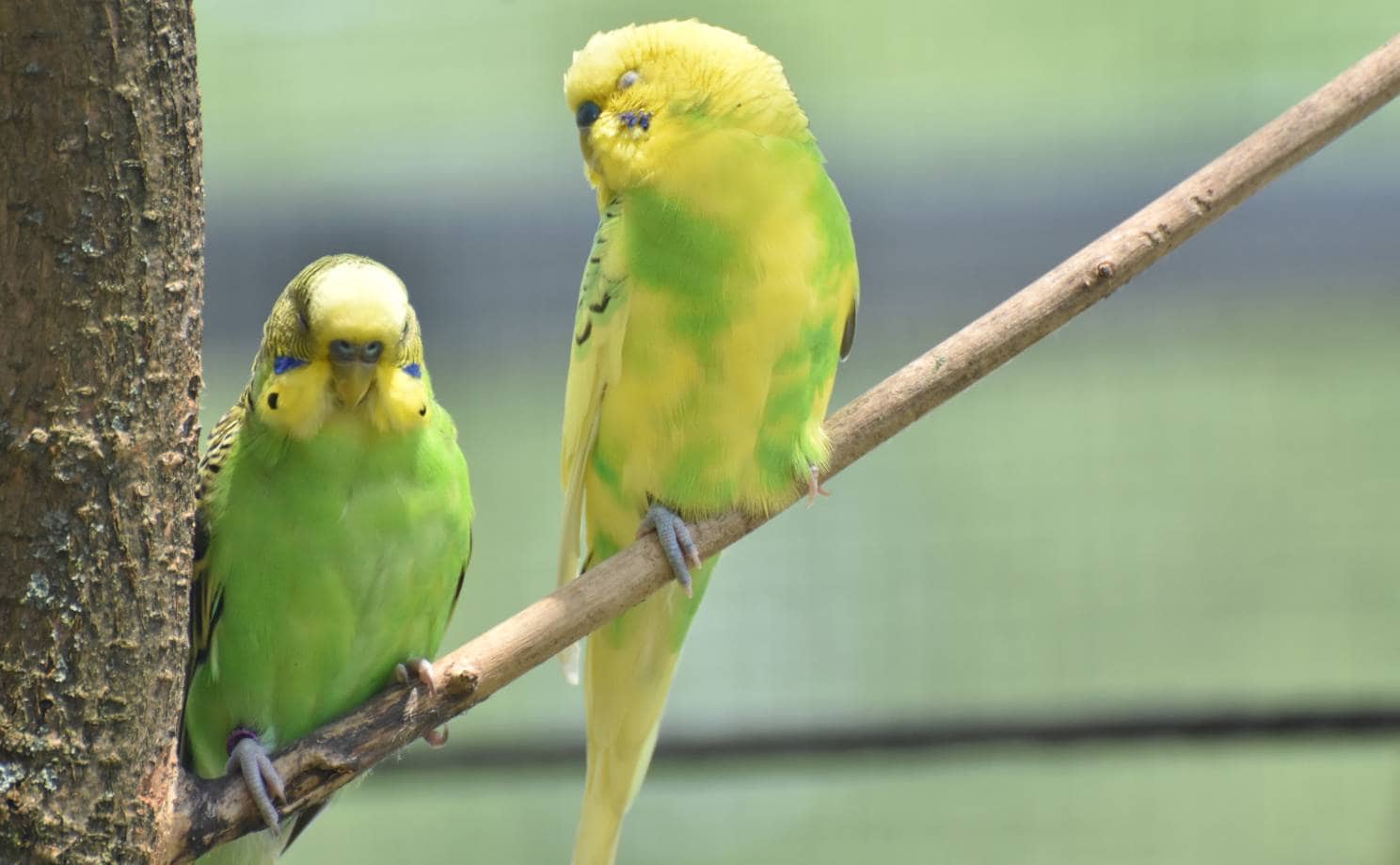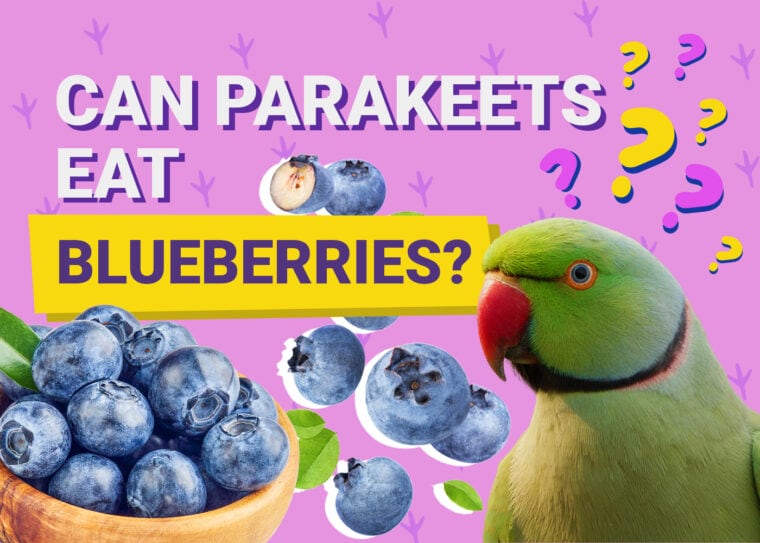
Parakeets are curious birds that get intrigued by anything new in their cages, especially if it’s something to eat. However, they have a sensitive digestive system and shouldn’t eat anything they lay their claws on.
Yes, parakeets can eat blueberries. Berries are considered the ideal fruit for parrots because of their low sugar content (when compared to other fruits). In addition, they are healthy and full of antioxidants and vitamins, which is good for them.
Read on to learn more about the benefits of blueberries for your parakeet.
A parakeet isn’t a specific type of parrot but rather a term given to several small to medium-sized species of parrots with long tail feathers.
The term parakeet isn’t a taxonomical reference to any genus or family of parrots; the parrots, sometimes referred to as parakeets, span multiple genera.
Examples of parrots generally termed parakeets include budgies, cockatiels, ring-necked parrots, and nose-ringed parrots.
Nutritional Value of Blueberries
Blueberries are rich in nutrients and antioxidants and low in calories. Here are some of the nutritional benefits they offer.
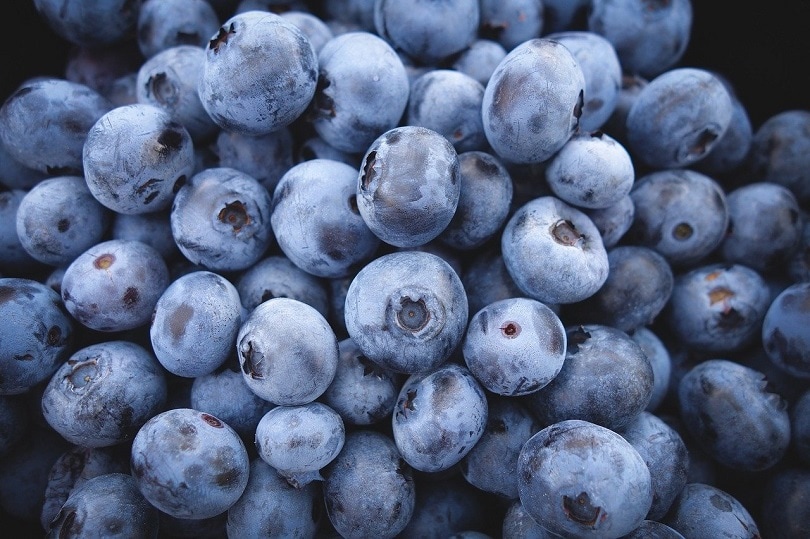
Water
The greatest benefit of blueberries is that (like most fruits) they are very high in water content. About 84% of a blueberry’s content is water. This means that blueberries are an excellent source of hydration for your pet bird.
Vitamin K
Blueberries are rich in vitamin K. In experimental studies,1 birds supplemented with vitamin K showed greater development and egg laying potential than those that weren’t supplemented with vitamin K.
Manganese
Manganese is needed for normal amino acid, protein, lipid, and carbohydrate metabolism. It plays a key role in many metabolic processes throughout your bird’s body.
Vitamin C
Vitamin C found in blueberries is very vital in the parakeet’s body. It helps in building a robust immune system which is good in fighting infections. That ensures the parakeets are healthy and oxidative stress is minimal.
Furthermore, vitamin C is used to stabilize sugar and the cholesterol level in the blood, develop bones and muscles, and control heartbeat rate. This ensures the overall health of parakeets is good.
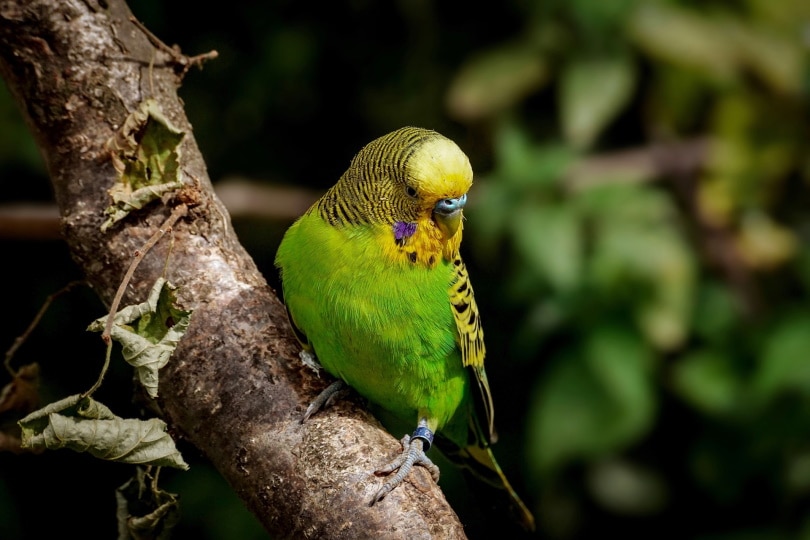
Antioxidants
Among vegetables and fruits, blueberries are the highest rich in antioxidants. When you feed your parakeets with blueberries, they get the benefits of the antioxidant.
Benefits of Blueberry Seeds
Blueberry seeds are small enough that you don’t need to worry about a choking hazard. Also, they are easy to digest, so no stomach upset for your feathery friend. However, when you feed your parakeets blueberries, you will discover that they pluck the seeds and start picking on them. That means they enjoy the seeds and find them suitable for eating. In addition, blueberry seeds have minerals that offer health benefits to your parrot.
So whenever you feed the parakeets with blueberries, don’t remove the seeds but let them enjoy as a whole.

How Many Blueberries Should You Feed Your Parakeets?
Just like any other fruit, parakeets require other foods for them to flourish and stay healthy. Blueberries are fruits, and the number of fruits given should consist of 5–10% of their diet. So, make sure you feed blueberries with other foods. Parrots that are frugivores (eat a fruit-based diet) can be given a higher proportion of fruits in their diet.
A formulated diet (such as a pellet) should form the majority of your companion bird’s diet (about 75%). The rest of the diet should be smaller fractions of vegetables, nuts, and other protein sources, and a small serving of fruits. True berries (such as blueberries) are preferred over other fruits.
How to Feed Blueberries to Parakeets
There is no right or wrong when it comes to feeding your parakeet blueberries. The key things to remember are:
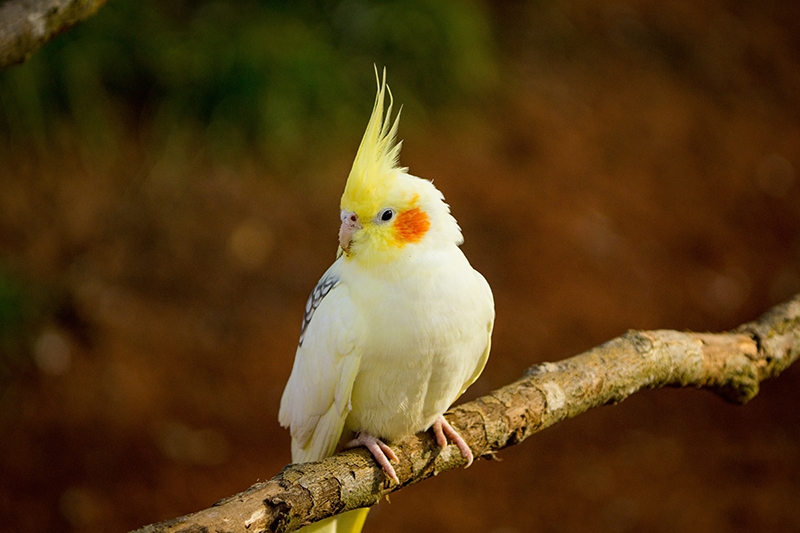
Washing
Blueberries are usually sprayed with pesticides to eliminate small insects. Washing to remove the pesticide may seem difficult because they are tiny.
You may have trouble washing one after another. In that case, consider soaking the berries in baking soda for around 15 minutes to remove chemical residue and dirt from the berries. That way, you will be sure your parakeets are consuming safe blueberries.
Feeding
Once you are sure the blueberries are clean, you can feed your parakeets. It’s either you hand-feed or let the parakeets feed on their own.
Blueberries can be offered on their own (as a treat) or mixed with your parrot’s daily ration of pellets and vegetables. Ensure you discard all uneaten fresh food at the end of each day.
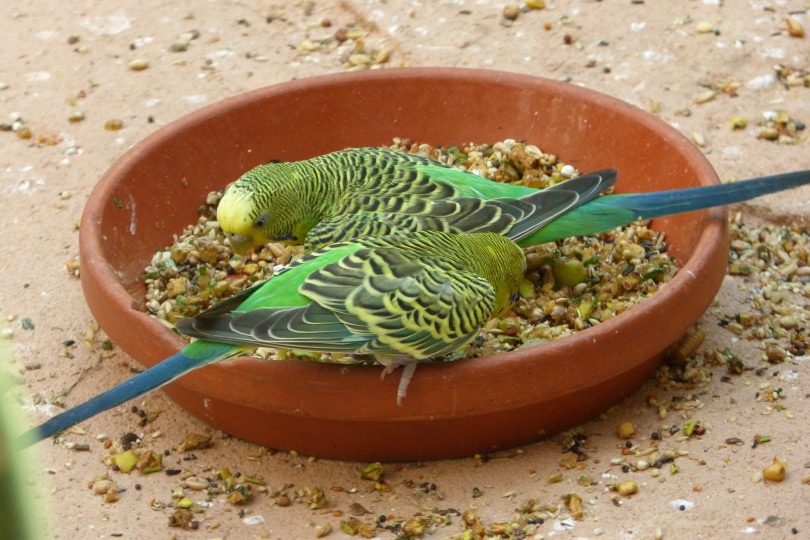
Can Parakeets Eat Dried Blueberries?
Yes, you can feed your parakeets dried blueberries. However, dried fruits have next to no water content and are extremely concentrated in terms of their sugar content when compared to fresh fruits. Therefore, it is advised to encourage them to take fresh blueberries instead of dried ones.
Final Thoughts
Blueberries are safe for parakeets to eat and are among the best fruits you can offer them. They offer several health benefits, and are generally readily accepted by most parakeets. In addition, their lower sugar content (when compared to other fruits) makes them a very safe bet when it comes to integrating fruits into your parakeet’s diet.
See Also:
- Can Parakeets Eat Sunflower Seeds? What You Need To Know!
- Can Parakeets Eat Grapes? Our Vet Answers!
Featured Image Credit: Piqsels



